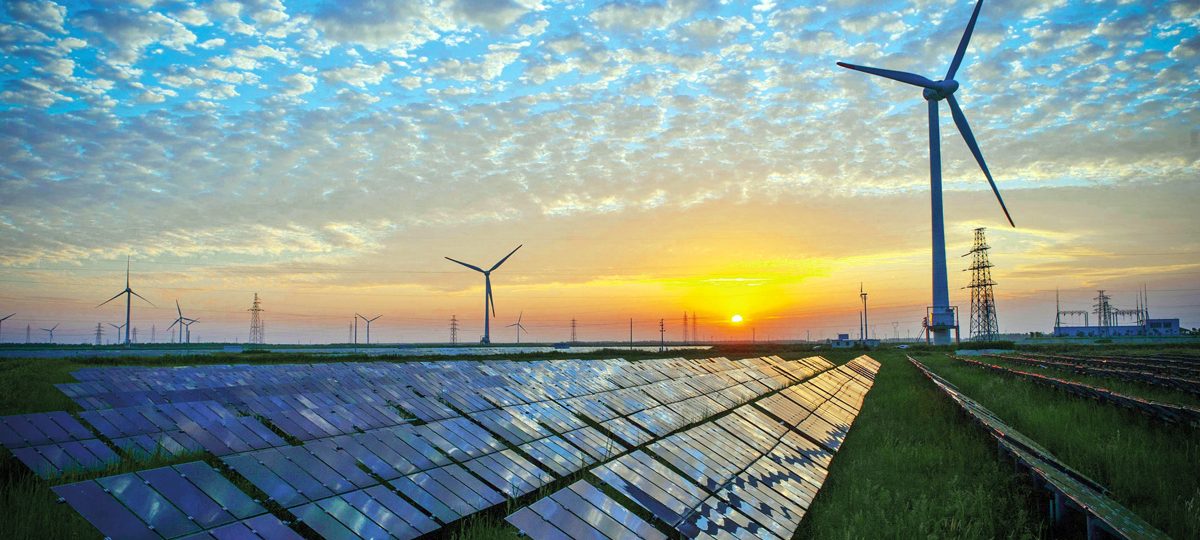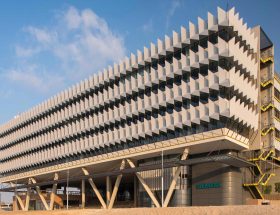The Middle East and North Africa (MENA) is addicted to fossil fuels but so too is the rest of the world. An energy transition will require a coordinated global shift in both the supply and the demand for fossil fuels and clean(er) energy, and multilateral institutions can play an important role. These institutions could help bolster international technology transfers to MENA, as well as scale up investment and trade in clean energy to facilitate the global energy transition. Given the potential in the region for solar power, MENA could remain a global hub—but this time for clean energy.
Late this year, the United Arab Emirates (UAE)—the world’s sixth largest oil exporter—will host the 28th UN climate change conference (COP28). This will spotlight the challenges that countries in the Middle East and North Africa (MENA) face both in their own and in the world’s transition from fossil fuels to green energy. Indeed, the region is home to the largest and cheapest-to-extract reserves of fossil fuels in the world.
A successful global energy transition requires that MENA countries move away from fossil fuel extraction and develop their abundant renewable and other clean energy sources. However, the transitional risks for the region in the form of loss in export earnings, macroeconomic instability, and eventually stranded assets are likely to be more acute than in other regions. The reliance on hydrocarbons is not the region’s only climate-related concern: MENA is also warming rapidly. Water resources are dwindling, and water stress is already becoming a source of social tensions, for example in Iran, as well as interstate conflict.
Given its vulnerability to climate change, the MENA region has a vested interest in combating climate change and environmental degradation. Yet, as argued in a recent CGD policy paper, because of its large and cheap-to-extract fossil fuel reserves, MENA is likely to be the last region to abandon fossil fuels. The region is addicted not only to fossil fuels, but also to fossil fuel revenues, fed by the world economy’s dependence on fossil fuels, which requires MENA to keep up the supply. Procrastination among large emitters in decisively transitioning away from fossil fuels creates a conundrum for MENA countries—a conundrum that is intensified by calls to rescue European economies with oil and gas supplies to mitigate the consequences of the war in Ukraine. While the energy transition is ineluctable and MENA countries should get on with it, MENA countries cannot make that transition alone.
Governance and ownership problems remain hurdles to an energy transition in the region
The energy transition in MENA is also complicated by long-standing governance and blurry ownership problems. Some countries are taking steps to address these challenges through energy diversification. Dubai, facing the depletion of its oil reserves, transformed itself into a global trade hub. The UAE and Morocco have taken important steps to use solar energy more widely. Countries such as Saudi Arabia have embarked on ambitious transformation projects including in energy, transportation, and tourism, whose success remains to be seen. Yet the region’s efforts have been, by and large, inadequate both in scope and pace. This failure is in good part rooted in the region’s governance problems, including non-inclusive economic institutions and policymaking. The Arab Spring that started in 2011 promised to spur sweeping reforms to grant more freedom and shared prosperity, but those aspirations were brutally quelled.
Much of the region, especially the oil importing economies, have large levels of youth unemployment and sizable macroeconomic imbalances, and need substantial social investment. Oil-importing economies would also need to borrow massively to finance investment in their energy transition on top of the macroeconomic costs of retiring economic structures that use fossil fuels. The region’s governance problems hinder countries from taking key transitional steps, such as addressing pervasive fuel subsidies and encouraging private sector investment in clean energy. Oil-exporting economies, especially those with small populations, have the resources to finance their investment but face a bigger challenge in ensuring the effectiveness of their public spending programs.
Broader geopolitical issues also present challenges
The external environment may also slow MENA’s drive for reform to get on with the energy transition and promote more inclusive institutions. Shifting geopolitics, exacerbated by the Russian invasion of Ukraine, have put MENA back at the center of attention from different geopolitical players including Europe, the United States, China, India, and Russia. This improved geopolitical interest, however, may not last long. For MENA, the more favorable global environment should not overshadow the importance of building cohesive societies and supportive institutions to manage not only the challenges of the energy transition but also the challenges of economic transformation.
Neither the ongoing surge in oil revenues (which may be the last oil super cycle) nor the recent geopolitical boon MENA oil producers are experiencing will address the economic structures that disgruntle the citizenry, especially the youth who too often vote with their feet by perilously crossing the Mediterranean on makeshift boats. MENA countries should rebalance their priorities to put their populations at the center of their policy considerations by committing to inclusive institutions, giving the populations voice and ensuring accountability of leaders. It is hard to imagine how MENA countries could successfully manage their energy transitions without addressing their deep-seated governance problems.
The role of multilateral organizations in supporting the energy transition in MENA and beyond
International organizations should support MENA’s energy transition by helping with the requisite reforms and resources. Multilateral institutions such as the World Bank and the International Monetary Fund—but also the Arab Fund for Economic and Social Development, the African Development Bank, the Islamic Development Bank, and others active in the region—could play an important role in supporting the energy transition and the necessary supportive reforms. These institutions must further champion the agenda for climate change and help integrate MENA’s energy transition into that of the global economy.
To do so, international organizations should first take on the role of climate surveillance in collaboration with the United Nations Framework Convention for Climate Change (UNFCCC) to ensure that both consumers and producers adhere to their commitments regarding national determined contributions made at COP21. Second, these institutions should ensure that MENA countries’ spending plans are consistent with their commitments, and that they have maximal efficiency at the allocative and technical fronts. Specifically, they should develop standards for green projects and ensure full disclosure and transparency.
A third issue is financing. The prevalence of state-owned enterprises in the extractive and electricity and transport sectors is a particular challenge in MENA countries. International organizations must step up their efforts to promote the transformation of the governance of these enterprises in terms of disclosure and adhesion to commitments. The transfer of technology to these enterprises could also be encouraged by international public offering. In addition, these institutions should step up their efforts to promote fair competition, including through independent regulators in the energy and transport sectors. These organizations should also scale their lending capacity to catalyze the private sector, including by joint guarantees between the different institutions. Eventually, the development of regional and global carbon markets could also help integrate the MENA energy transition in the global one.
Finally, multilateral institutions must ensure that the energy transition also serves as a tool for the economic and social empowerment of people in MENA. They can do so by supporting an upgrading of regulatory frameworks and governance frameworks, maximizing the local content of investment, and promoting the decentralized production of renewable energy power where individuals also become producers. The promotion of better-functioning markets, starting with clean energy markets, will help give MENA and the world a fresh start.
Disclaimer
CGD blog posts reflect the views of the authors, drawing on prior research and experience in their areas of expertise. CGD is a nonpartisan, independent organization and does not take institutional positions.










